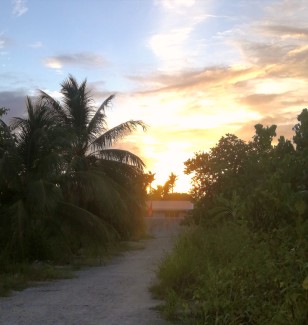Substance Use and the Maldives

There are decades’ worth of evidence from around the world to guide us; we need to follow it. Given the importance of the issue, I say let’s do all interventions that have shown promising results. But what does this mean for drug use in Maldives?
While understanding the complexities of drug use within a society is not easy, we still can make a couple of general statements.
Let’s accept the fact that drug use is best addressed as a health policy issue and not a criminal justice one. Believing that criminalisation serves to deter people from using drugs is wrong. It does not. The fact is that criminalisation is both ineffective and expensive, and has a number of negative consequences such as the higher rates of relapse and impact on employability arising from a criminal conviction among many others.
It’s much better to provide evidence-based interventions which are measurable, and have shown positive impact on individuals, families and society. People who talk about "harukasi fiyavalhu thakeh alhan jehe" ( strict and stringent measures must be taken ) or "dhoru thah bandhukureema mikan nimeyne" ( supply reduction will end this ) by criminalising and incarcerating people who suffer from substance use disorders or focusing only on strengthening supply reduction are really just in favour of wasting money, they need to wake up and learn from countries like Iceland.
There are gaps, potholes and a useless amount of red tape entwined by civil service regulations in the current systems which need to be addressed, filled and removed with haste. The best way forward will be to assess the rather visible flaws in the current systems and develop ways to counter the outcomes economically, the burden of cost bared by the nation since the 1990's on incarceration and inpatient treatment facilities are, according to trusted resources, staggering.
For people who are actively using we need,
- to ensure adequate access to medical detoxification and evidence-based treatment programs in different settings - Atoll hospitals can be equipped to provide medically assisted detoxification.
- to increase access to treatment by placing substance use disorders under public health insurance policies or by assessing and removing the existing barriers to treatment.
Services need to match the needs of the people. The way to achieve this in an economically sustainable way is to privatise prevention, treatment and rehabilitation services.
The National Drug Agency needs to transform itself into a monitoring body with an evidence-based drug policy, strict standards and ethical guidelines, it needs to act as the leader it was meant to be.
People we speak to express a wish to live a life without drugs; we should be able to support them in attaining this goal. That means moving away from a model of only providing residential treatment, and towards different models or approaches of treatments, in different settings such as outpatient or home-based treatment. We must also ensure that aftercare support or a continuing of care, is available for people leaving treatment to support them in developing the social capital which helps prevent a return to risky behaviors.
We can't expect positive results by providing acute care for a relapsing chronic relapsing brain disease.
Drug use isn’t going away. We cannot end the harm associated with drug use; thinking we can is arrogant. What we can realistically seek to do is to minimize the harm drug use causes to society by preventing drug use before it begins through evidence-based prevention programs in schools and other important life settings, and by ensuring that the appropriate evidence-based services are available for people as and when they need them.
A responsible response like this will provide the best outcomes, socially and economically to individuals and the community we serve.